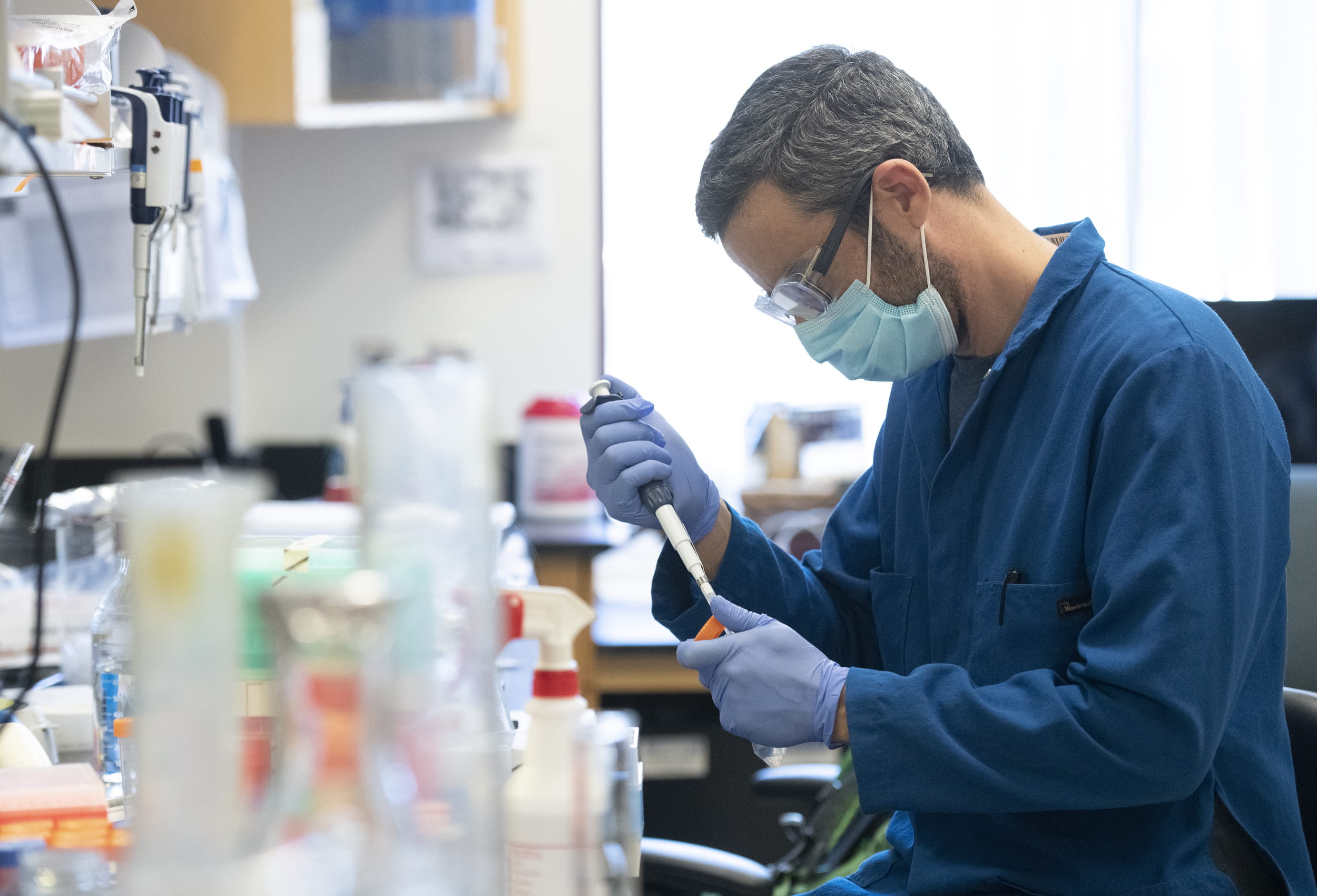UCI has skin in the lab-grown meat game
Neurobiologist Ian Smith will lead campus effort to create new cell lines for research

Sometime in the not-too-distant future, when grocery stores and restaurants offer lab-grown or cultivated meat options, we might have UCI biologists, in part, to thank.
Cellular agriculture, which largely focuses on the manufacture of animal products from cell cultures rather than traditional means, has become increasingly popular recently, with nearly $2 billion invested in startups over the past two years alone. The problem, however, is that there are very few publicly available cell lines for researchers to use in this pursuit.
To address that, Ian Smith, a UCI research professor in neurobiology and behavior, was recently awarded nearly $100,000 by the Good Food Institute to develop a platform to establish “immortalized” muscle cell lines – which proliferate indefinitely – that will be made available to researchers everywhere.
“What we’re proposing to do is immortalize muscle cell lines using a few novel approaches to provide much-needed research tools so that academic labs or small startups can get hold of these lines for teaching or proof-of-principle research purposes,” Smith says. “There are so many different disciplines involved in producing cultivated meat that it’s going to require people with diverse skill sets using relevant cell lines. Hopefully, these tools will make it a little bit easier for people to optimize their processes.”
Another benefit of getting these cell lines into the public space is to allow independent verification of many of the claims private companies are making about cultivated meat.
The Good Food Institute – an international nonprofit – funded the UCI research project to further its mission of hastening the development of sustainable alternative proteins and ease the world’s dependence on conventional meat.
According to the GFI, the production of cultivated meat uses fewer vital resources, such as land and water, and emits fewer greenhouse gases than does conventional agriculture.
“GFI is delighted to be supporting Dr. Ian Smith’s cultivated-meat research,” says Erin Rees Clayton, the organization’s senior associate director of science and technology. “His project focuses on creating an innovative platform for the development of animal muscle cell lines. This work will address a big bottleneck in the cultivated-meat research field: the availability of relevant cell lines. We’re excited to see how Smith’s GFI-funded research will help accelerate cultivated-meat science and appreciate his focus on innovative, high-impact and collaborative research.”
Partnering with Smith on this project are Karina Cramer, UCI professor of neurobiology and behavior; Michael Hicks, UCI assistant professor of physiology & biophysics; and Matthew Walters, assistant professor of medicine at the University of Oklahoma Health Sciences Center.
If you want to learn more about supporting this or other activities at UCI, please visit the Brilliant Future website at https://brilliantfuture.uci.edu. Publicly launched on Oct. 4, 2019, the Brilliant Future campaign aims to raise awareness and support for UCI. By engaging 75,000 alumni and garnering $2 billion in philanthropic investment, UCI seeks to reach new heights of excellence in student success, health and wellness, research and more. The School of Biological Sciences plays a vital role in the success of the campaign. Learn more by visiting https://brilliantfuture.uci.edu/school-of-biological-sciences.


